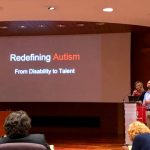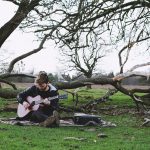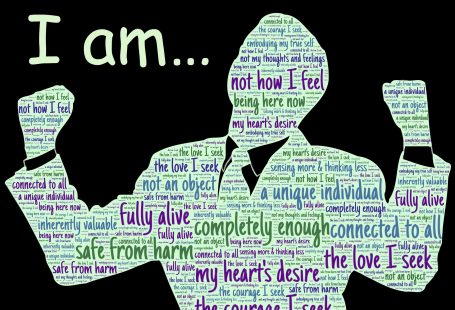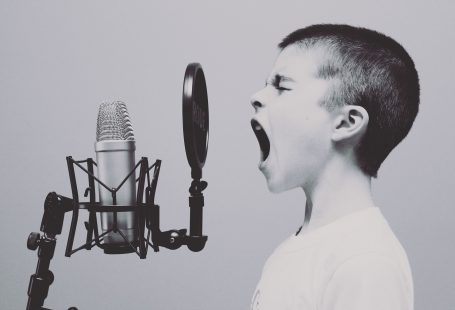 Redefining Autism: From Disability to Talent.
Redefining Autism: From Disability to Talent.
This was the title of a lecture I gave, together with music therapist Nuria Escudé, at the V International Conference of the International Association for Music and Medicine last week here in Barcelona.
It has been a great experience and, for a person like me who loves to spend as much time as possible alone and doesn’t really love being surrounded by a busy crowd, it’s been a great achievement.
But there are two lessons I learned from this conference I want to share with you, and they’re both connected to the title of the lecture.
The first is about the redefinition of autism.
Last February, I was asked to join the organizing committee of the Conference by my friend and mentor Nuria. During the years we’ve spent working together, she has treated me in a completely new way, compared to what I was used to. She regarded my autistic traits in a very light way, often asking me questions to understand how people on the spectrum experience the world, or sometimes making little jokes about my weird behaviors. But the most amazing thing is that she is always able to turn things upside down. My compulsive interest in neuroscience has become to her eyes a value that could be used at the university, and the same happened with my obsessive need for ordering things, thoughts, words. She turned this into an ability to organize, write emails and speeches, a “talent” to find the most effective, simple solution to apparently complex and chaotic problems.
This redefinition of my own condition has, since then, made me much more self-confident and the most amazing thing is that, once I stopped seeing myself as a weirdo who needed to hide his odd behaviors to the world, I lost that horrible feeling of being out of place, wrong, sometimes stupid for not understanding a joke or a social rule.
More than four months attending meetings, sending tens of emails a day, making reports, arranging and scheduling speeches, checking abstracts. But that wasn’t too difficult since most of the work was done from home and I love spending time alone putting an order in the chaos… What amazed me was the conference itself.
 For three long days I was surrounded by 300 people, everyone with a question, a problem to solve. “My Powerpoint presentation doesn’t work, my schedule is wrong, where do I have to go?” And I didn’t show the slightest hesitation, no sign of burnout. The thing is, a few people knew of my Asperger diagnosis, but even those who did not know, apparently didn’t care if I did not look them in the eyes while talking, or if sometimes I couldn’t get a joke or when I didn’t hug and kiss them to say hello or wasn’t interested in their endless chitchat.
For three long days I was surrounded by 300 people, everyone with a question, a problem to solve. “My Powerpoint presentation doesn’t work, my schedule is wrong, where do I have to go?” And I didn’t show the slightest hesitation, no sign of burnout. The thing is, a few people knew of my Asperger diagnosis, but even those who did not know, apparently didn’t care if I did not look them in the eyes while talking, or if sometimes I couldn’t get a joke or when I didn’t hug and kiss them to say hello or wasn’t interested in their endless chitchat.
It’s been kind of a coming out, something like: hey, people, this is me, take it or leave it. And, surprisingly, they took it!
For the first time in my life I felt strong because a person had empowered me, she had trusted me and transformed those weird obsessions into abilities, showing me that it doesn’t mind what people may think or not. What’s important is that I could finally do what I like, that I was able to show the world around me how effective people on the spectrum can be in some areas, sometimes even more than neurotypicals.
The second point is strictly related to music, which by the way, is the theme of this blog.
I firmly believe that music (music therapy but also musical education) is a powerful tool for autistic people. I will talk more in detail about its many advantages over other therapies with ASD in future posts, but here I want to tell you how music helped me to talk in a conference room in front of hundreds of doctors, psychologists, musicians and music therapists, being able to deliver my message clearly and effectively.
Anxiety is a big issue for people on the spectrum. Some studies have demonstrated that autistic people are much more subject to suffering an anxiety disorder compared to neurotypicals. And, when it comes to speaking in public, it can be terrifying.
Music helped me managing the fear of a public speech in two different ways.
First, I use music to reduce my omnipresent anxiety. Playing an instrument or listening to your favorite music or even just imagining the music, has a proven effect on anxiety. So, during the minutes before the lecture, since I had no piano or mp3 player with me, I just played some Bach’s fugues in my mind. I tried to focus on the sound, the articulation, listening with my inner ear. It’s something I’ve always done in stressful situations and I must say it works better than mindfulness or meditation, which I also tried in the past with mixed results.
Imagining the music in every detail focuses your attention somewhere else, far from the stressor, and because you play your favorite music you also enjoy it. Of course, if you have an instrument or an mp3 player, it’ much easier.
But, once on stage, you can’t go on imagining your music and talking at the same time. At least, I can’t. And here’s where music also can help a lot.
Since I was a child, I’ve been accustomed to playing in public. I must say that after so many years, still, tension is very, very high before every concert, but once I sit at the piano or the harpsichord and start playing, it all fades away.
What I realized is that talking in public is easier than playing. I just had to compare the two things: when preparing for a concert, I have to memorize a huge amount of notes, my brain has to perform remarkable calculations to allow my fingers to produce the right sound at the right time for each note. It’s incredibly complicated, and if concentration goes down even for a second, the risk is to ruin the entire concert. As my piano teacher used to say, it’s like running down a very long stair. Don’t look at your feet, don’t even think of them, just run, because you only need to take one false step, and the next thing you know is that you’re falling down the damn stairs.
 But, talk? That’s easy. Ok, I admit that the idea of going on stage and having to talk in front of an audience scares me every single time, but when I rationalize it and compare it to a concert, it gets easier. The thing is, if I misspell or forget a word, it’s no big deal, I can always correct it and go on. But when playing an instrument, you need to remember every single note, while when speaking in public, you only have to remember the order of concepts, ideas.
But, talk? That’s easy. Ok, I admit that the idea of going on stage and having to talk in front of an audience scares me every single time, but when I rationalize it and compare it to a concert, it gets easier. The thing is, if I misspell or forget a word, it’s no big deal, I can always correct it and go on. But when playing an instrument, you need to remember every single note, while when speaking in public, you only have to remember the order of concepts, ideas.
Words come out by themselves, and there are many ways to express an idea. When speaking in public, even if you rehearsed your speech, you can always improvise. That’s what usually happens.
So, also in this case, music has been my greatest help. Once I learned how to play in public, speaking has become a piece of cake. well, almost…
It is one of those situations in which music can be unbelievably beneficial to autistic people. During my work at the Catalan Institute for Music Therapy, I’ve seen it many times. When children come agitated, nervous or anxious to a session, the therapist uses relaxation techniques, lets them discharge their energy on an instrument or plays some relaxing music for them. Singing is also very useful. Of course, it’s not just playing or singing. There are specific techniques that aim at resolving specific issues, and to get the most out of music, you need the help of a qualified music therapist. I can’t stress this enough.
The other aspect, learning to play an instrument, is also a prodigious tool. It increases self-confidence, refines fine motor skills, focuses concentration and improves memory. It also increases the release of dopamine and endorphins, while reducing cortisol, the stress hormone. Learning music (playing an instrument, singing…) helps to structure ideas and thoughts and increases the ability to self-discipline. The process of learning music develops the ability to plan a strategy in order to get a result, which is something many autistics miss.
Being a musician is the best thing that could happen in my life, and I warmly recommend parents of autistic children to give music education a try. Your children don’t have to become the next Mozart, Bach or Keith Jarret. The simple act of learning to play an instrument or sing will be a great help, and each little progress, even the smallest, will be for them a great achievement.
Hope you found it interesting. If you have any questions, just drop me a line from my contact form!




